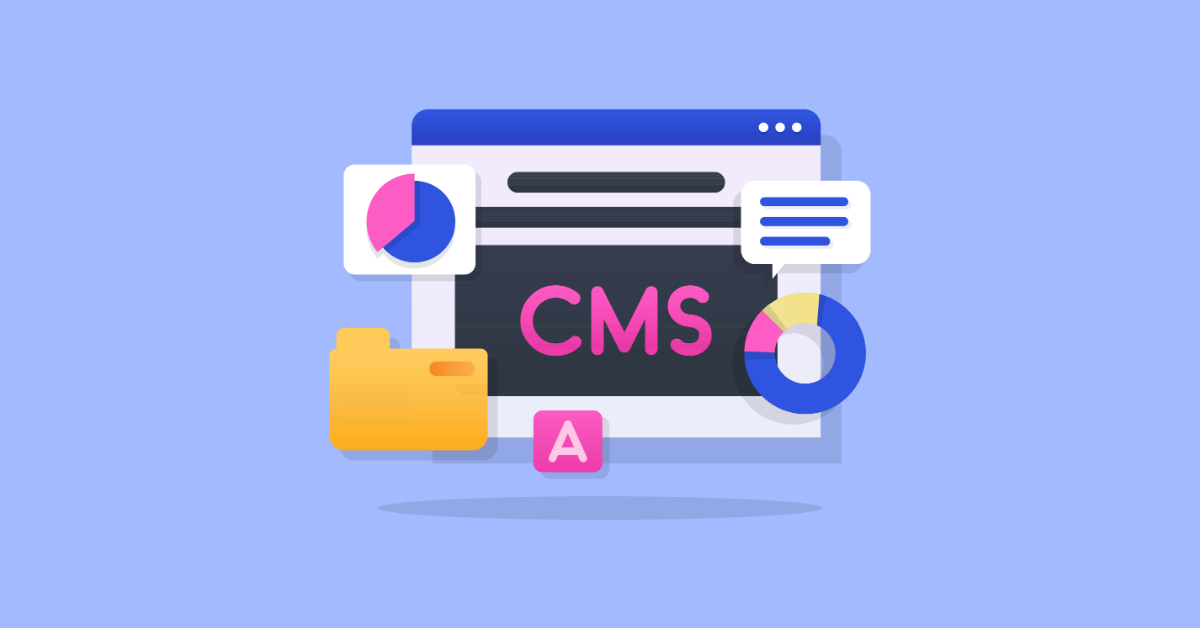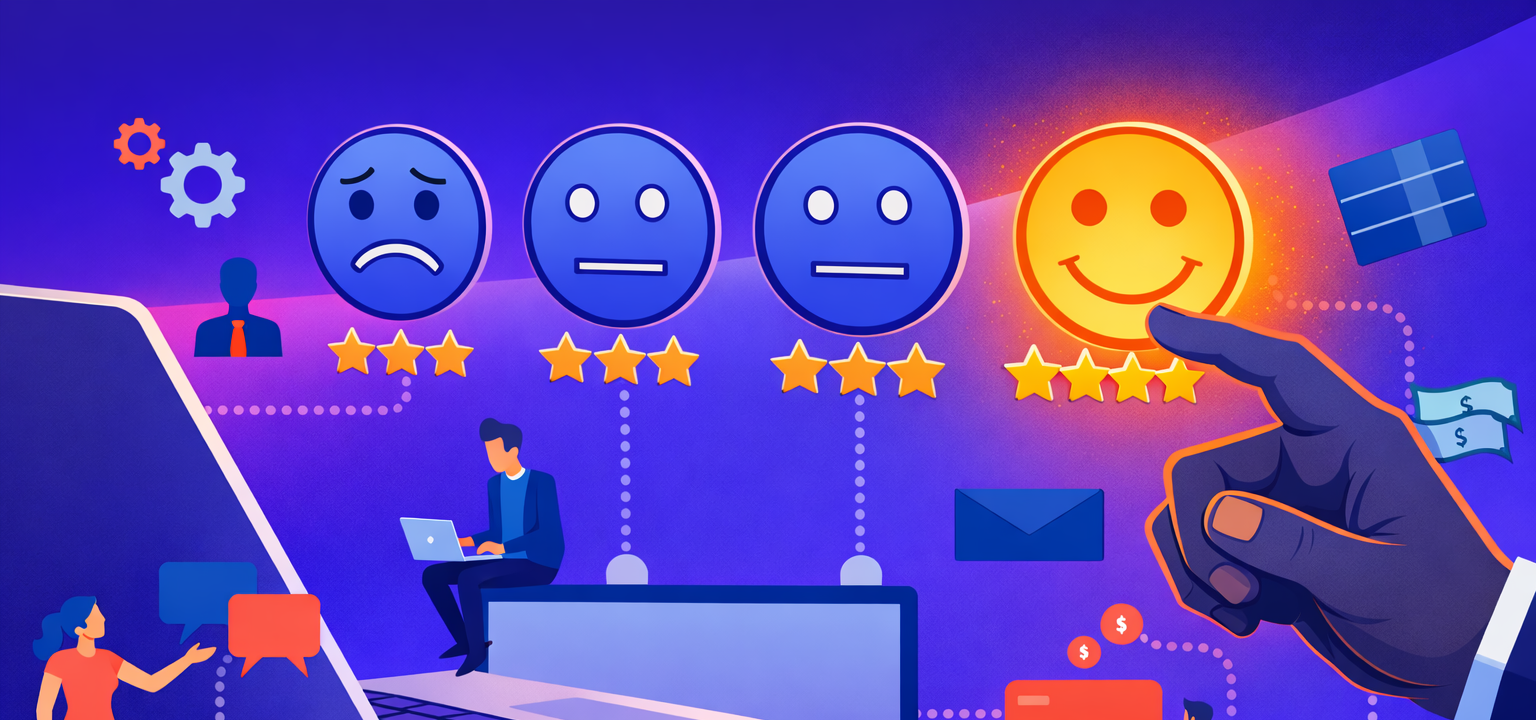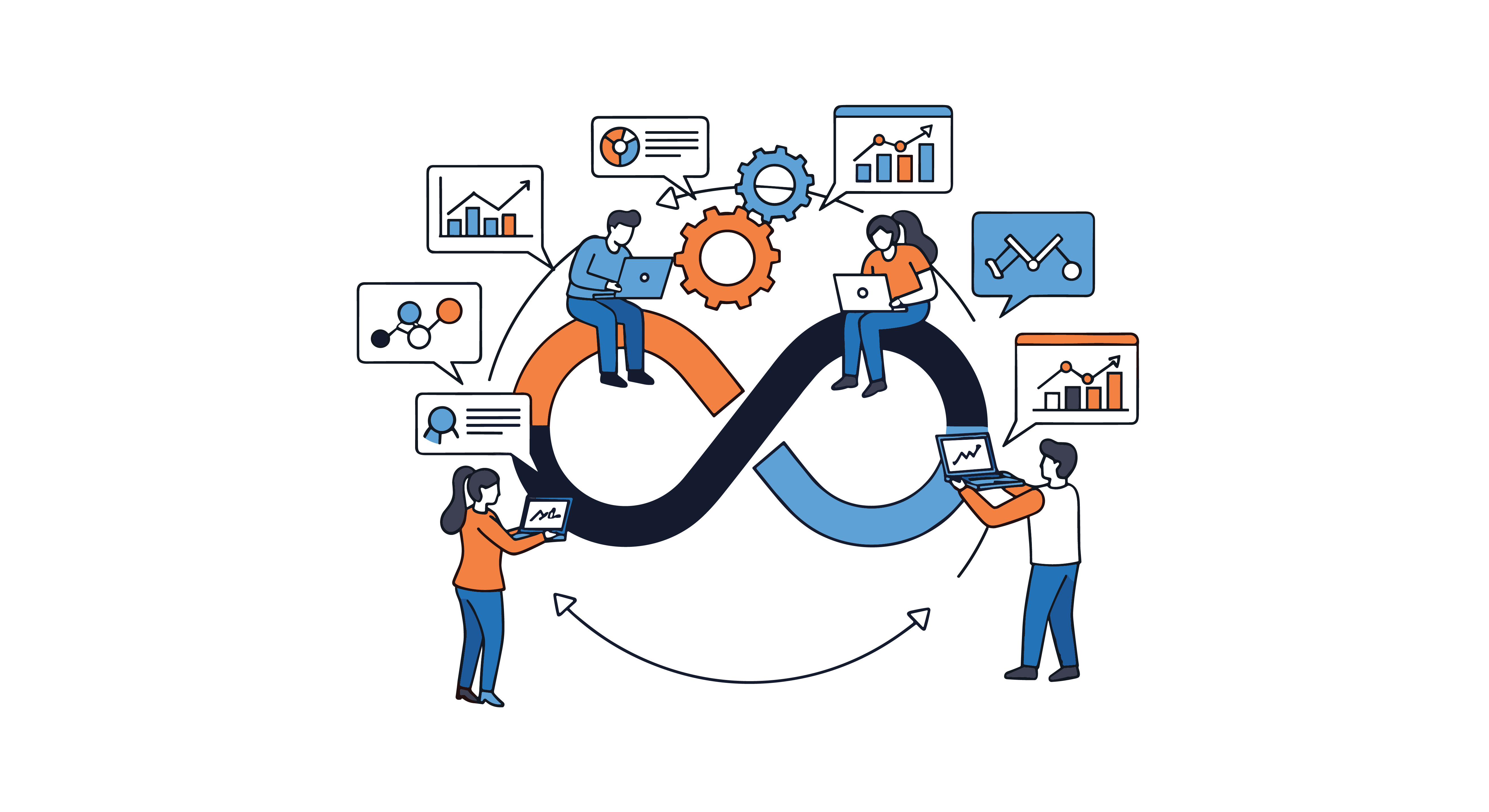In order to establish and maintain their online presence, businesses are looking more closely at how their website CMS integrates with their tech stack, and how easily it allows rapid deployment of new content and pages, without the massive overheads of needing developer support for these kinds of changes.
75% of consumers say that they make judgements on a company’s credibility based on their website design. This, coupled with the drastic increase in consumers’ desire to engage in digital self service, is why it’s so important for brands to devote resources to designing their websites as per best practices and keeping them as up to date as possible. But at scale, this can be a pretty tall (and expensive) order.
It makes sense then, why the CMS industry has been booming over the past few years. Businesses want to scale without the disproportionate increase in the resources required to do so. A good CMS helps them achieve this.
But choosing the right CMS can be a difficult and overwhelming process to go through. What’s a good price? What features are a must have? How much does it need to integrate with your other tech, especially your CRM? How do you know you’re choosing the right one for your business?
It’s not just a financial investment, it’s a change to the way your people operate.
We understand the pressures involved in making this kind of decision. That’s why in this blog we’ll be covering the main points you should consider when choosing a CMS for your business. We’ll also be following up with some strong recommendations for different CMS platforms your enterprise businesses should consider.
Key Criteria for Choosing the Right CMS
When starting the process of choosing the right CMS for your business, it's important to weigh up the various factors that align with your business’ needs. Let's break down the key criteria that should be at the forefront of your decision-making process.
Customisability: Meeting Your Business Objectives
-
What type of content do you want to put on the website? What key features do you need access to?
-
Consider features such as dynamic content, e-commerce, member areas and portals, blogs, events management tools, integration ability, localisation tools, SEO capabilities and personalisation tools.
-
-
Evaluate whether the CMS will allow you to customise these features to work toward your business’ specific objectives. The ability to tailor the platform means that it not only meets your current requirements, but can evolve as your business grows.
Usability and Support: Navigating the User Experience
-
Pay attention to the platform's user-friendliness vs your team's capabilities. There might be a learning curve for your team, but it shouldn’t be so steep that it becomes majorly disruptive and off-putting.
-
Especially consider the ease of use for members of your team who may not be tech-savvy.
-
Look at the support infrastructure in place. How accessible is support, and how quickly and effectively can issues be resolved? A responsive support system is super important in the success and adoption of a new CMS.
Price: Uncovering the Total Cost of Ownership
-
Scrutinise the licensing costs associated with the CMS platform.
-
If you’re low on budget, check if there are strong templates that will help you get started fast to minimise resource expenditure.
-
Look for potential hidden costs and factor in expenses related to add-ons and plugins.
-
Consider the long-term costs of licensing, purchasing, and maintaining necessary components.
-
Consider how much you want to rely on your human resource capacity vs the CMS platform’s capabilities to scale your website as the business grows. A CMS with more capabilities to scale, without a significant increase in human resources may present greater upfront costs, but decrease your overheads later down the line.
Scalability: Planning for Future Growth
-
Assess whether the CMS platform can scale alongside your business growth.
-
Anticipate what your business might need from the platform in the future, and whether the chosen platform can adapt, or if a transition to another system will be necessary down the line.
Security: Safeguarding Your Digital Presence
-
Examine the security features embedded in the CMS platform.
-
Look for measures that prevent phishing, spam, and other potential security breaches.
-
Prioritise a CMS platform with robust security protocols to safeguard your digital assets and maintain trust with your audience.
-
Think about how big the team using the platform is going to be, and how much you need to lock down access and editing capabilities to avoid security breaches. Does the CMS provide capability around this?
-
Get clued up on what is needed to keep the platform up to date and secure, so that it doesn't break later down the line.
There are many different factors to consider when choosing a CMS platform for your business (more than are listed here). Deciding what factors to prioritise can be confusing and difficult but if in doubt, refer back to the needs and goals of your business. This should serve as a north star for your decision making during this process.
Top 3 CMS Platforms for Enterprise Businesses in 2024
The first step before you embark on any CMS journey, is outlining what the goals are of your website. Is it brand experience? Lead acquisition? Supporting existing customers? Having a clear understanding of these goals helps you define the experience of your site, which in turn helps you decide what CMS you need to deliver this experience.
There are many different factors to consider when choosing a CMS platform for your business (more than have been listed here). Deciding what factors to prioritise can be confusing and difficult but if in doubt, always refer back to the company’s goals and work from there.
HubSpot's CMS Hub
Strengths
Security: A significant benefit of using CMS Hub is that it has strong built in security. HubSpot has both the CDN and the SSL certificates, meaning that users can be sure they are using a secure website and that the website will be able to scale its performance as necessary during high traffic periods.
Integration: CMS Hub seamlessly integrates with the rest of the HubSpot CRM. This means users get a consistent and unified view of their website and marketing analytics, enabling better lead tracking, targeted marketing and website strategy.
Usability: CMS Hub has a drag and drop interface that can be used to create, customise and edit website pages. This is excellent for businesses who are wanting to reduce their reliance on external developers as the user-friendly interface means that website edits and updates are simple to do and don’t need developer experience.
Weaknesses
Customisation: If users are wanting to achieve advanced design customisation, this will likely require technical expertise and additional tools.
Usability: CMS Hub has a user friendly and intuitive interface, however there is a steep learning curve involved as users familiarise themselves with the vast range of features and functionality.
Pricing: Some advanced features are only available in the higher plan tiers (Professional and Enterprise) which may be a barrier for smaller businesses with budget constraints. It’s worth noting however, that HubSpot boasts a range of completely free features as well that are extremely useful for smaller businesses and startups.
Wix
Strengths
Usability: Wix is known for its easy-to-use drag and drop interface. It makes the process of creating a website surprisingly simple, even for the less technically inclined — allowing individuals to build and launch professional websites in record time.
Customisation: When using Wix to build your website, you are required to use one of their provided templates. However, you can still customise your site by changing other aspects including images, text and layout. And if there are other functionalities that aren’t accessible through the chosen template, you can purchase them through the Wix App Market.
Support: Every paid plan includes access to a customer support team. You get more informed help, while spending less time troubleshooting overall. This kind of benefit is especially important for businesses who are new to using CMS, where the learning curve is quite steep regardless of the platform's user-friendliness.
Weaknesses
Integration: Wix doesn’t allow for the use of external third party apps or plugins. While they do offer a huge range in the Wix App Marketplace, if what your website needs is a little more niche, this could pose a problem for you.
Flexibility: One major drawback of the Wix platform is that once a website is created on a template, you can’t change the template. If you want to change it, you’ll have to start from scratch and build the website again. Depending on the size and complexity of your website, this can be a huge resource drain.
Pricing: There are two aspects of the Wix platform that affect the pricing. The first being that while Wix does offer a free plan, businesses who opt for this will soon find themselves upgrading to premium plans to increase their sites bandwidth, storage, reporting capabilities and more.
Webflow
Strengths
Customisation: Users can achieve advanced levels of customisation with Webflow’s massive range of designs, templates and typefaces.
Security: Webflow has a noteworthy backup system that protects users against accidental deletions and changes. Additionally, because there are no plugins required, users don’t need to worry about regular updates to protect from vulnerabilities and cybersecurity risks.
Support: There is a huge range of high-quality support and learning resources available for users in their online library: ‘Webflow University’.
Weaknesses
Support: Unless a business is using an Enterprise plan, they can only get customer support via email. Troubleshooting technical issues over email can be a frustrating process, especially if the issues are time sensitive.
Usability: There is a steep learning curve involved with this platform, and there is a common sentiment that this platform is more suitable for developers despite their claims otherwise.
Scale: There are different traffic limits assigned to different plans. The most website visitors you can have on a Webflow website is 300,000. This number will be lower with a smaller plan.
Choosing the right CMS platform can be a daunting task, especially when there are so many aspects and features to consider. We’ve explored a few areas that we deem important when considering a new CMS platform but remember, these may be subject to change based on the needs and constraints of your own business.
So, before making any decisions, the first thing you should do is outline the goals and requirements of your company — these will help you ascertain what’s important in a CMS platform and what’s not.
At Hype & Dexter, we use CMS Hub
We find CMS Hub to be the perfect platform for our marketing team and our developers, which is why we recommend it to our clients.
Businesses are able to update and maintain their websites and web pages without developer experience — and if they need that extra bit of customisation or would like something built that’s a bit more technical, we can step in to help them get it.
Hit the button below to book a time with one of our friendly team who can discuss the platform in more detail with you. 




.jpg)
Comments